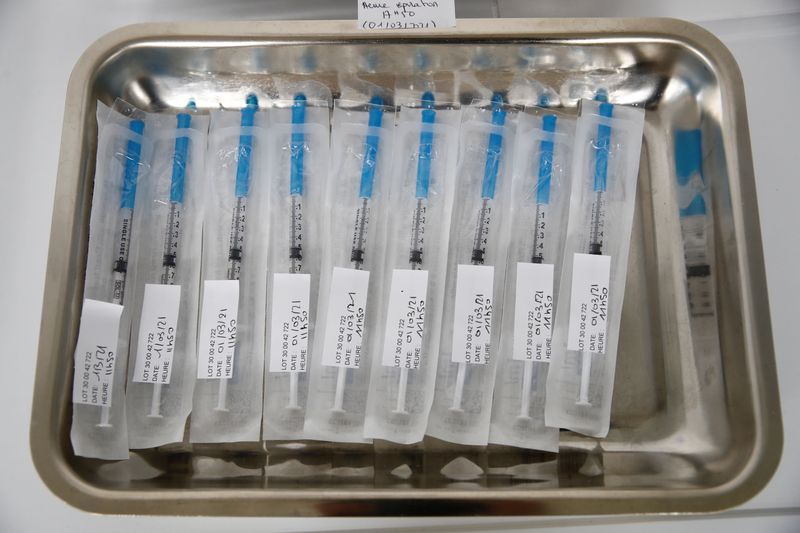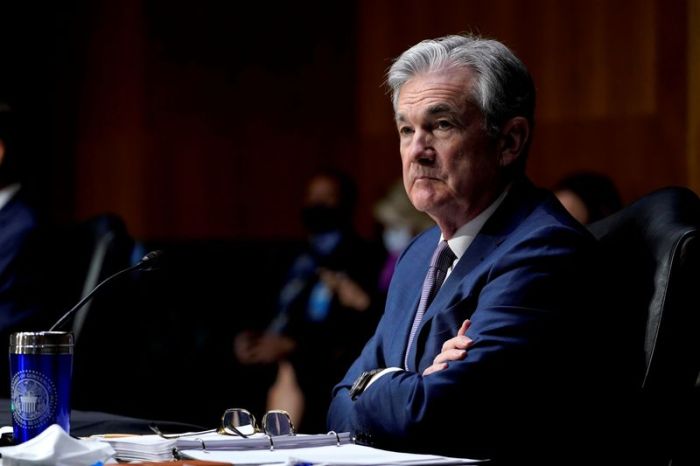WASHINGTON (Reuters) – The COVID-19 pandemic will continue to swell global public debt in 2021, but spending more money to accelerate vaccinations is the fastest way to start to normalize government finances, the International Monetary Fund said on Wednesday.
The IMF said in its 2021 Fiscal Monitor report that if faster global vaccinations bring the virus under control sooner, more than $1 trillion in additional global tax revenue could be collected through 2025 in advanced economies.
If that same upside scenario in the Fund’s economic forecasts materializes, global GDP output could increase by $9 trillion during the same period as businesses reopen and hire more quickly, the IMF said.
“Vaccination will, thus, more than pay for itself, providing excellent value for public money invested in ramping up global vaccine production and distribution,” the IMF said in the report.
The IMF and the World Bank during their virtual Spring Meetings this week are urging member countries to keep up fiscal support for their economies and vulnerable citizens and businesses until the pandemic is firmly under control.
The Fund estimated governments have deployed some $16 trillion in pandemic-related fiscal support since the pandemic started through March 17 this year. That includes $10 trillion from additional spending and foregone revenue, and $6 trillion worth of government loans, guarantees and capital injections for businesses.
In 2021, the Fund projects fiscal deficits will shrink slightly in most countries as pandemic-related support expires or winds down, unemployment claims drop and revenues start to recover as businesses reopen.
Average overall budget deficits reached 11.7% of GDP for advanced economies in 2020 — quadruple their 2.9% share in 2019 — but they should narrow to 10.4% in 2021, the IMF said.
Deficits in emerging economies will also shrink slightly in 2021 to 7.7% of GDP for emerging market economies and to 4.9% for low-income economies.
Average worldwide public debt is projected to hit a record 99% of GDP in 2021 and to stabilize at that level after rising slightly from 97% in 2020. For advanced economies, debt will peak at 122.5% in 2021, up from 120.1% in 2020.
The IMF called for more targeted support for vulnerable households, including minorities, women and workers in low-paying jobs in the informal sectors of many economies. More focused support for small businesses was also needed, it said.
But it said some advanced countries with high debt levels may need to start rebuilding fiscal buffers to prepare for future shocks. It said those countries should develop multi-year frameworks for increasing revenues and rationalizing spending, giving priority to investments to fight climate change and reduce economic inequality.
In a Fiscal Monitor chapter released last week, the IMF said advanced economies could use more progressive income taxes, inheritance and property taxes, and taxes on “excess” corporate profits to help reduce inequalities exposed by the COVID-19 pandemic.
(Reporting by David Lawder; Editing by Ana Nicolaci da Costa)
























